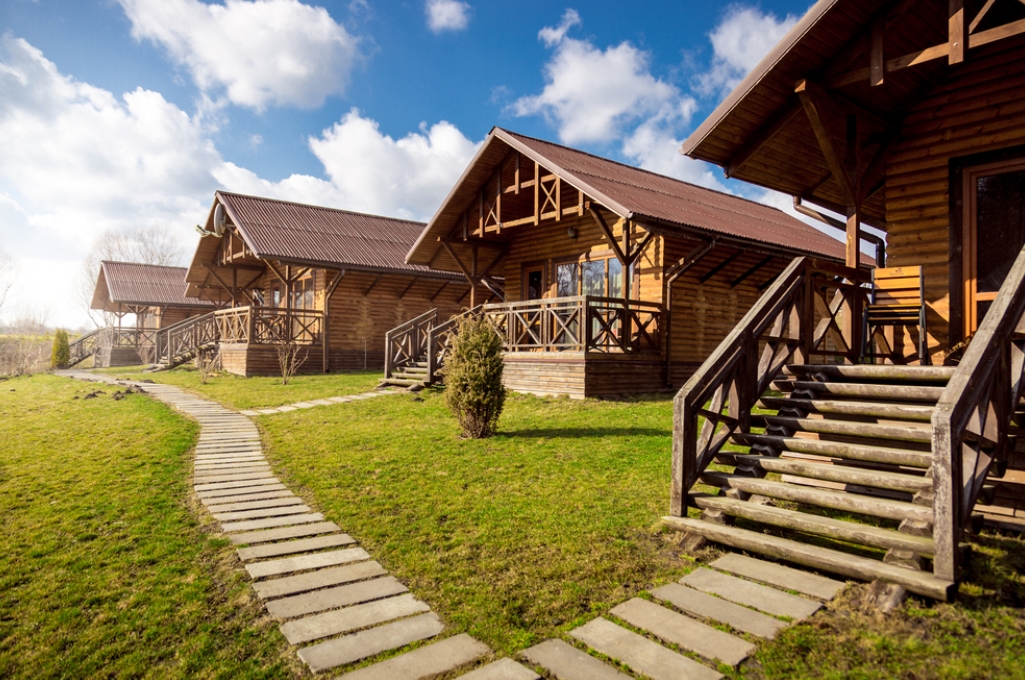Avoid Pitfalls: How to Plan a Strict Kosher Vacation
Planning to travel abroad? Relaxing at a hotel in Israel? Or maybe renting a cabin? Any of these options might present significant spiritual challenges. With proper preparation, you can overcome them.
 (Photo: shutterstock)
(Photo: shutterstock)This time of year is marked by endless planning. Plans regarding "what we'll do on vacation," plans about places "we'll go after Tisha B’Av," and mainly discussions on where we'll find the vacation that best suits us, allows us to have fun with the whole family, and recharge energy for returning to routine.
You've probably already debated the financial aspect, and likely formed opinions on the hotel's star rating or the amenities the cabin offers. This time, we're here to highlight some spiritual aspects. To achieve the perfect vacation, it must also meet spiritual requirements.
Unfortunately, some vacations offer the opposite, and if you don’t check crucial elements in advance, you might experience major disappointment, which would be a shame.
Booking a hotel room? Have you checked if it overlooks the pool?
Chose a hotel vacation? Great. You'll certainly enjoy it, but be aware—hotels with standard kosher certification are often much cheaper than those with stringent kosher certification, which might be tempting. The issue is, even if you're not planning on enjoying the meals and only intend to sleep there, you might encounter challenges, such as room windows overlooking the pool, immodest displays around the hotel, or inappropriate music.
 (Photo: shutterstock)
(Photo: shutterstock)Recently, a discussion took place in the Constitutional Justice Committee about the discrimination against Shabbat observant guests in Israeli hotels. Complaints were raised about being asked to vacate rooms in the middle of Shabbat. Naturally, such incidents do not occur in hotels with mehadrin kosher certification, as they observe Shabbat. So, isn't it better to eliminate hotels without mehadrin from your list?
Conversely, many hotels in Israel offer standard kosher certification during the year, but in the summer months, they manage to secure mehadrin certifications and boast this in publications aimed at the observant community.
Caution! The fact that a hotel has obtained mehadrin certification does not necessarily mean it is suitable for a family adhering strictly to religious laws. Even if the hotel is entirely booked by the Haredi community, it is crucial to scrutinize every detail before booking such a vacation. The most important question to investigate is: who is behind the vacation? You cannot settle for the hotel owners saying there’s a 'rabbi.' It's essential to find out who the rabbi is, and specifically check the kosher status of the meat, as not all hotels are stringent enough on this matter.
It's also important to verify whether the hotel has an operational synagogue. You don't plan on wandering the streets looking for a prayer minyan.
To conclude: Want to vacation and enjoy a hotel stay? Do not compromise on your spiritual enjoyment, and search for hotels that understand you and offer what’s important—stringent kosher certification and full accommodation.
Traveling abroad? Checked if you’ll have what to eat?
Vacationing abroad is enticing for many families, but due to high costs, some try to save money. Instead of traveling through an experienced tourism company familiar with the area, they book an anonymous hotel (usually one with reasonable-looking pictures online and not overly expensive) and fly there.
At first glance, everything seems fine. But the food issue often emerges as a problem. Families staying in such hotels realize they'll need to cater for themselves. You'll find them dragging suitcases filled with crackers, canned goods, and even pots and kitchen utensils. The plan is "to cook themselves," but that’s easier said than done.
It soon becomes apparent that what they brought from home isn’t enough to satisfy the growing hunger. Even the schnitzels they 'smuggled' on the plane turn out cold and tasteless, and honestly—how much pastrami can one eat?
 (Photo: shutterstock)
(Photo: shutterstock)It is important to know that in most parts of Europe, finding stores offering kosher food is almost impossible. Fruits and vegetables can be consumed, but those who've tried know they taste entirely different from those in Israel, and are also very expensive. Even seemingly kosher eggs often turn out to have blood spots. (Yes, statistically, there are more cases like this abroad).
Even when discovering a 'Magnum' ice cream bar in a store that's just like home, it quickly becomes evident that it's just 'like,' without kosher certification of course. Ultimately, one has to settle for drinking the universally kosher Coke and staying hungry until returning home...
To conclude: If you chose to travel independently abroad, you must first ensure there are Jewish restaurants, a Chabad House, or stores with stringent kosher certification in your vacation area. Also, bring as much food from home as you can. It will never be unnecessary.
Shabbat abroad? Do some prep work
Kosher issues aren't the only challenges when flying abroad. If you plan to stay in a hotel overseas on Shabbat, you need to speak with those who have done so before to hear if that particular hotel is truly suitable for observant guests.
Don't rely on what hotel staff tell you in broken English over the phone. They usually know nothing about Jewish law. Even if they promise regular room keys instead of digital ones, or say there will be a place to light candles and even a hot plate (which is probably impossible due to smoke detectors), you may end up discovering that the entrance lights are sensor-activated every time you pass by, forcing you to stay inside the hotel the entire Shabbat.
The solution: Generally, simpler hotels are more appropriate for Shabbat observant guests, as they lack many digital devices. Nonetheless, consider that you'll miss things like a Shabbat hot plate or urn, or pre-cut tissues. These are privileges found only in Israel.
Going to a cabin? Arm yourself with proper questions
In recent years, there are more and more cabins advertising that they are suitable for religious family accommodations. However, it turns out they often lack any understanding of such a family's needs. Thus, upon arrival, you might discover that there are no Shabbat clocks in the rooms, no Shabbat plates, and not even mezuzot on the doorposts. Indeed, no one prevents them from claiming they're suitable for the Haredi community, so why shouldn't they claim it?
Some cabins claim during vacation seasons that they offer separate swimming hours at the shared pool for a few cabins. Sounds attractive, right? But did you check to see if your cabin doesn't overlook the pool? It's unlikely that's the view you planned to see from your window... Another good tip - check who the neighbors in adjacent cabins will be.
 (Photo: shutterstock)
(Photo: shutterstock)Concerning the pictures on the cabin walls, do they match your taste, or would you prefer your children not see them? And the kitchen utensils—has anyone bothered to make them kosher?
Unlike hotels subject to scrutiny, cabins have no oversight, so when they claim to be 'suitable for the Haredi public,' this statement means nothing at all.
This is also why, should the cabin owner offer culinary services (chocolate sets, fruit platters, breakfast, and other enticing items), you must require a kosher certificate. Naturally, without such documentation, you mustn't partake of those products.
To conclude: Search for cabins owned by religious individuals or at least those who understand the matter. Request a kosher certificate and add your critical clauses to the contract. If possible, visiting the cabin in advance is, of course, advisable. Only then, sign the reservation form.

